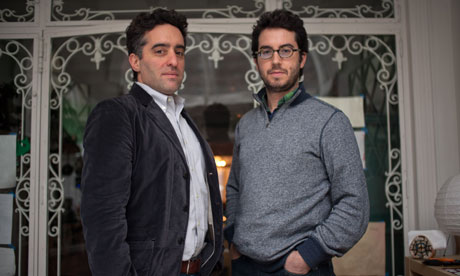
Passover is the easiest festival for Jews of scant belief to embrace. There is none of the policed piety of the High Holy Days or the rejection of western culture that Hanukah commemorates. Its universalist message of a people's liberation from slavery has been adopted by revolutionary movements throughout the modern era from Oliver Cromwell to Martin Luther King.
Despite the seemingly simple narrative, the Haggadah – the compilation of rituals, folkstory, songs and biblical exegisis recited on seder night – is uncertain about whether the memory of bondage or the celebration of freedom should predominate. The seder begins by describing matzah as "the poor man's bread that our fathers ate in the land of Egypt" (according to Nathan Englander's translation in this new edition). At the end of the narrative, the reason given for eating it is that "the dough of our fathers didn't manage to leaven before [God] redeemed them". Passover's split personality precludes any easy nostalgia or nationalist triumphalism.
There is a requirement that "in every generation, a person is obligated to view himself as if he were the one who went out of Egypt", which is as much an alarum to the injustices of the present as an act of historical imagination. Some of the finest moments in the commentaries assembled here from four leading Jewish writers have a political edge. The Atlantic journalist Jeffrey Goldberg writes passionately of the dilemmas of freedom: how do you reconcile the competing claims of your family, your people and the rest of humanity? Can a successful struggle against evil be accomplished without bloodshed? He confronts the most troubling moment of the seder, when the doors are opened and God is invited to "shed your wrath upon the nations", by arguing that the abolitionists and Gandhi channelled their anger productively (though admittedly he evades discussion of the request that He "pursue them in anger and annihilate them").
While the contributions from the novelist Rebecca Newberger Goldstein and the historian Nathaniel Deutsch too often veer towards sententiousness, the chirpily irreverent Lemony Snicket leavens the mix. This Haggadah's design is supposed to have been inspired by the evolution of Hebrew lettering across the centuries, though you'd be forgiven for surmising, when looking at all the gaudily coloured smudges, that a job lot of Ikea paintings was the primary influence. More disappointing is the quality of Englander's translation. Too often he strives to deploy a novel word that is not quite accurate. Did 600,000 Jews really "linger" in Egypt for hundreds of years? And I can't understand why he dabbled in such fusty usages as "unto", "yea" and – zounds! – "prithee". Also "paschal" is misspelled throughout, so it appears that the ancient Israelites offered sacrifices to a 17th-century French mathematician.
The Haggadah is no masterpiece; those approaching it cold are likely to find the exposition of verses and the hymns enumerating God's manifold wonderfulness tedious, even confusing. Safran Foer's edition is, quite deliberately, not an introductory one. But for those with some familiarity with the service, it offers plenty of provocations.

